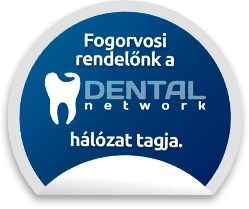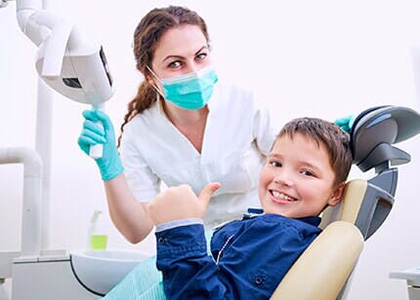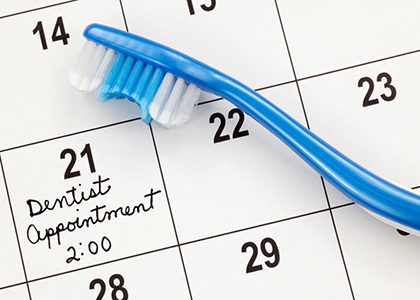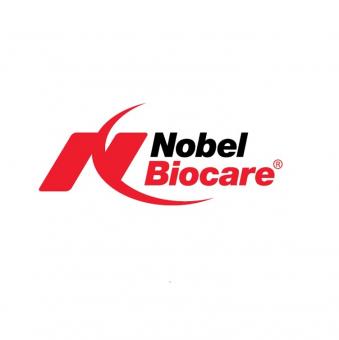Painkiller for Toothache
Toothache is a dreaded condition, manifesting in various forms from mild pressure to sharp, intense pain, and often occurring at the most inconvenient times like weekends or at night. This often leaves us unable to immediately seek dental care, necessitating home remedies for temporary relief. It's crucial to remember that no medication can cure toothache; however, the pain can temporarily be managed. This article compiles various medications and methods available for combating toothache.
Causes of Toothache
Common Causes
Toothaches can arise from several sources. One of the most common is dental decay, where damage to the tooth surface allows nerve endings within the tooth to be exposed, causing sharp pain during eating or when the damaged area contacts other substances.
Inflammatory processes, such as pulpitis or gingivitis, typically start with a constant, dull pressure and can later develop into swelling. The pain not only arises from consuming food or drink but also from using the muscles in the affected area, such as speaking or chewing.
Inflammation can lead to abscesses or pus-filled pockets in the gums (or elsewhere in the oral cavity), which initially cause a tense feeling and, if ruptured, can result in severe pain radiating throughout the jaw and face.
The eruption of wisdom teeth can also cause significant discomfort, often mistaken for ear or throat pain due to the pain being primarily felt in the jaw or face.
Less Common Causes
In rare cases, inflammation or injury of the jawbone may be involved. Following an injury or tooth extraction, the jawbone may become inflamed, causing significant pain and possibly leading to trismus (lockjaw).
Muscle and joint pain around the mouth can also occur, often as a result of stress-related jaw clenching or involuntary teeth grinding during sleep.
Unfortunately, the causes of toothache are not always as straightforward as losing a filling. Sometimes, conditions of the ear, throat, tonsils, or sinuses are misdiagnosed as toothache.
Most Commonly Recommended Medications for Toothache
Most drugs do not treat the root cause of toothache but only alleviate symptoms. It is vital to see a dentist for pain, but until that is possible, it is advisable and necessary to relieve the pain. If untreated, it can lead to more severe problems, such as chronic trismus or malocclusion.
Different pain relievers work in various ways for toothaches. Over-the-counter pain relief options include:
Metamizoles
These drugs are very effective for toothache because they can handle stronger pain. However, they can cause allergies in many people, so they should be used with caution and in consultation with a doctor. Algopyrin is an example of this group.
Acetylsalicylic Acid
One of the oldest active ingredients, it has pain-relieving, fever-reducing, and anti-inflammatory properties. It should not be used in asthmatic patients as it may trigger an attack. It's not recommended for those with stomach issues, nor is it suitable for children under 12. Since acetylsalicylic acid irreversibly inactivates platelets, it is strictly contraindicated in clotting disorders. Aspirin and Kalmopyrin are examples.
Ibuprofen
Many dentists recommend ibuprofen for toothache because it also has anti-inflammatory effects. The downside is that it should not be taken long-term as it can cause gastrointestinal issues. Examples include Advil, Ibumax, and Algoflex.
Diclofenac-containing Drugs
These should be used in cases of sudden, severe pain because they act quickly. Unfortunately, they should not be used long-term or frequently due to their potential liver and kidney-damaging effects.
Paracetamol
Less effective for toothaches but has fever-reducing and anti-inflammatory properties. Paracetamol is found in most cold remedies (e.g., NeoCitran, Coldrex, Rubophen, Panadol) and is usually combined with another pain-relieving or sedative substance. It can help with toothache, but since it is taxing on the body and less effective, it is generally not the first choice.
Home Remedies for Toothache
"Put some brandy on it!" – as the saying goes. Treating with alcohol (externally) is not to be dismissed because alcohol has disinfectant properties, thus it can indeed provide temporary relief. However, alcohol is also easily absorbed through the mucous membranes, has mind-altering effects, and can interact with medications, so this method should rather be considered an interesting folk remedy for home treatment of toothache.
Natural Solutions for Toothache
Temporary relief for inflammatory symptoms can be provided by cold water rinses and cold compresses. The constricting effect of the cold helps eliminate the feeling of tension. Saltwater rinses also have disinfectant properties, especially helpful in cases of gingivitis.
Treating Toothache with Essential Oils
Home treatment of toothache can also involve essential oils. Clove oil has numbing, pain-relieving properties, while lavender is also a good anti-inflammatory. Chewing the actual plant can help, but pure essential oil can also be applied externally.
Home treatment of toothache is only safe if symptoms are mild and you know your body well, such as knowing that essential oil does not cause an allergic reaction. Most home remedies can be used in conjunction with over-the-counter medicines, thus enhancing their effectiveness.
It is very important to always dilute essential oils with some base oil (such as olive oil or flaxseed oil) to avoid irritation! Without this, they can have a strong, mucous membrane-irritating effect.
When to See a Doctor?
In case of toothache, with few exceptions such as the loss of milk teeth, it is always necessary to see a doctor. If the pain is very severe, emergency dental care may be needed. Unfortunately, this is not always simple on weekends or at night, so it is advisable to treat the problem as soon as the first symptoms appear.
Immediate treatment of toothache is important to avoid more serious symptoms, such as inflammation of the facial bones and tooth loss. This is important not only for health reasons: replacing teeth and treating complex dental problems is generally expensive, and within the framework of government-supported procedures, it may not always be aesthetically resolved.
Emergency dental interventions usually aim to alleviate pain and prevent further damage. Emergency care generally involves exploration and cleaning of the affected area, temporary care, and medication – so, for example, implantation or other costly procedures are not performed at this time. These cannot be performed in the presence of acute inflammation anyway. Thus, there is no need to fear high costs – in return, prompt intervention can render many expensive operations unnecessary.
In summary, always book an appointment with a dentist if:
the pain is very intense or poorly responds to painkillers, the toothache lasts longer than two days, toothache is accompanied by fever, swelling, and headache, muscle or joint pain is associated with mouth opening, breathing or swallowing difficulties occur alongside the toothache. Frequently Asked Questions (FAQ) How quickly do different painkillers act? The fastest-acting pain relievers for toothache are generally diclofenac-containing products – but the effect greatly depends on individual sensitivity and the nature of the pain. If the pain does not subside within an hour after taking the medication, it is advisable to seek help immediately.
When should you see a doctor if home remedies don't help? If the pain is very severe, preventing eating, drinking, or sleeping, immediate intervention is warranted. The same applies if fever, vomiting, or lockjaw occurs. But it's best to go to a doctor for any severe pain and possibly use a home remedy until intervention.
What are the risks of long-term use of painkillers? Nearly all painkillers suitable for toothache have potential liver and kidney-damaging effects, as well as straining the stomach and digestive system. The likelihood of these issues increases with long-term use. Overusing painkillers can lead to dependency, prompting patients to overdose, further increasing the likelihood of complications.
Summary The best way to eliminate toothache is to seek medical advice. Taking medication for toothache should only be done until effective treatment can address the cause of the pain and accompanying inflammation. Treating toothache at home merely alleviates symptoms and rarely provides a real solution.
Struggling with toothache? Book an appointment as soon as possible and eliminate the causes of your problem!




















